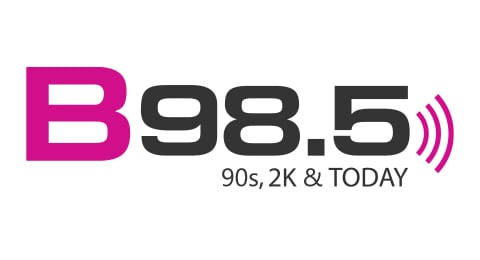What to do if your credit score is harmed by the restart of federal student loan collections
There are many benefits that come with a good credit score: better rates on car and homeowners insurance, more housing options, and the ability to snag credit cards with the best rewards, just to name a few. But soon millions of student loan borrowers may have to say goodbye to some of those perks.
More than 9 million student loan borrowers will face "significant drops" in their credit scores once delinquencies appear on their credit reports in the first half of 2025, according to a recent report from the Federal Reserve Bank of New York. The delinquencies come as a result of the Education Department restarting collection efforts on federal student loans that are in default after having paused those efforts for years.
If you see your credit score take a tumble, you'll likely be wondering what to do next. Current, a consumer fintech banking platform, shares everything you need to know about why scores are dropping and what steps you can take to start bumping your score back up.
Why student loan borrowers’ credit scores are dropping
One of the federal government’s many COVID-19 pandemic-era relief efforts was the pause on federal student loan payments — a pause that was extended several times, giving borrowers room to breathe over the last few years. In 2023, borrowers were given a yearlong “on-ramp” period during which late or missed payments didn’t lead to a hit on their credit reports. That period expired in September, and, because payments need to be at least 90 days late before falling into delinquency, we’re starting to see the effects on delinquency now.
"The first batch of past due student loans were reported in the first quarter of 2025, resulting in a large jump in seriously delinquent borrowers," Daniel Mangrum, research economist at the New York Fed, notes in a recent report. More than 2.2 million of those newly delinquent borrowers saw their credit scores plunge more than 100 points, and more than 1 million saw decreases of at least 150 points.
What to do if your credit score is harmed
The first step to getting back on track when it comes to your student loans and credit score is to get a good grasp of your current situation, says Anjali Jariwala, a financial advisor and founder of Fit Advisors in Redondo Beach, California. She says to visit the Federal Student Aid website and pull a report from the National Student Loan Data System, which can give you a full history of your student loans, including outstanding balances. Then, she recommends working with a student loan consultant to fully understand your options.
But there may not be much more you can do regarding your student loans beyond trying to make payments. At that point, it’s time to take other steps to boost your score.
Minimize revolving debts and make on-time payments
If you have other debts, work on bringing those down in conjunction with paying back your student loans, says Andre Small, a financial advisor and founder of A Small Investment in Houston.
That’s especially important for high-interest revolving debt, such as credit cards. And while it’s fine — and actually beneficial to your credit score — to have a diverse range of types of credit (say, a credit card, auto loan and mortgage on top of your student loans), it’s important to make your payments on time.
Maintaining a long credit history can also help give your score a bump, so instead of closing an old credit card account, consider putting a small recurring cost like a subscription service on that card.
Get a higher credit limit
Your credit utilization ratio, also referred to as your credit utilization rate, is a key factor that can impact your credit score. This ratio is the amount of credit you’re using divided by the amount that’s available to you. The lower you can get it, the better.
One way to lower that ratio is to get a higher credit card limit. If you have a $1,000 limit and you spend $100, that’s a 10% ratio. But if you increase that limit to $5,000, now you’re looking at a 2% ratio. Banks will often alert you when you’re eligible for a higher credit limit, such as if your income increases, but you can also call your credit card issuer directly and ask for a bump to your limit.
However, you need to keep in mind that the higher limit doesn’t mean you should go on a shopping spree. “The goal is not to increase your credit limit so you can spend more,” Jariwala says. “The goal is just to get that ratio to be at that ideal level, which, for credit score purposes, is usually 10% or less.”
For younger consumers who may not be able to boost their credit limit, Jariwala adds that another option is to see if a parent can add you as an authorized user on their credit card, which can also help boost your credit score.
Dispute any errors on your report
One thing worse than taking an action that causes your credit score to fall is to have someone else hurt your credit score.
With technology constantly evolving and scammers developing new and sophisticated ways to steal their victims' identities, the Federal Trade Commission received more than 1.1 million identity theft reports in 2024. That means it's more important than ever to regularly check your credit report for any activity you don't recognize and dispute any errors. You can get a free weekly report from the three major credit reporting agencies — Equifax, Experian and TransUnion — at AnnualCreditReport.com, and you can usually expect to see the results of an investigation within 30 days of filing the dispute.
Use a credit builder card
When evaluating secured credit cards that can help you build or repair your credit, look for the following features:
- The card can be used just like any other credit card. Even though it draws only from the funds available in your account, it will reliably build your credit history with every transaction.
- It keeps track of your balance as you spend and ensures you have enough money set aside in reserved funds to cover your outstanding balance at the end of the month.
- It enables you to set up automatic payments once or twice per month, as desired, paying your balance from your reserved funds with no additional action needed from you.
- The provider reports your on-time payments to the three major credit bureaus to help build your credit history. This is important, as a history of on-time payments is a major factor in improving your credit score. For instance, Current's proprietary data shows that users of its secured card see an average 81-point credit score increase within six months.
The result? Eventually, your credit score will start to creep up, ideally giving you more options and better interest rates when it’s time to borrow money.
This story was produced by Current and reviewed and distributed by Stacker.





